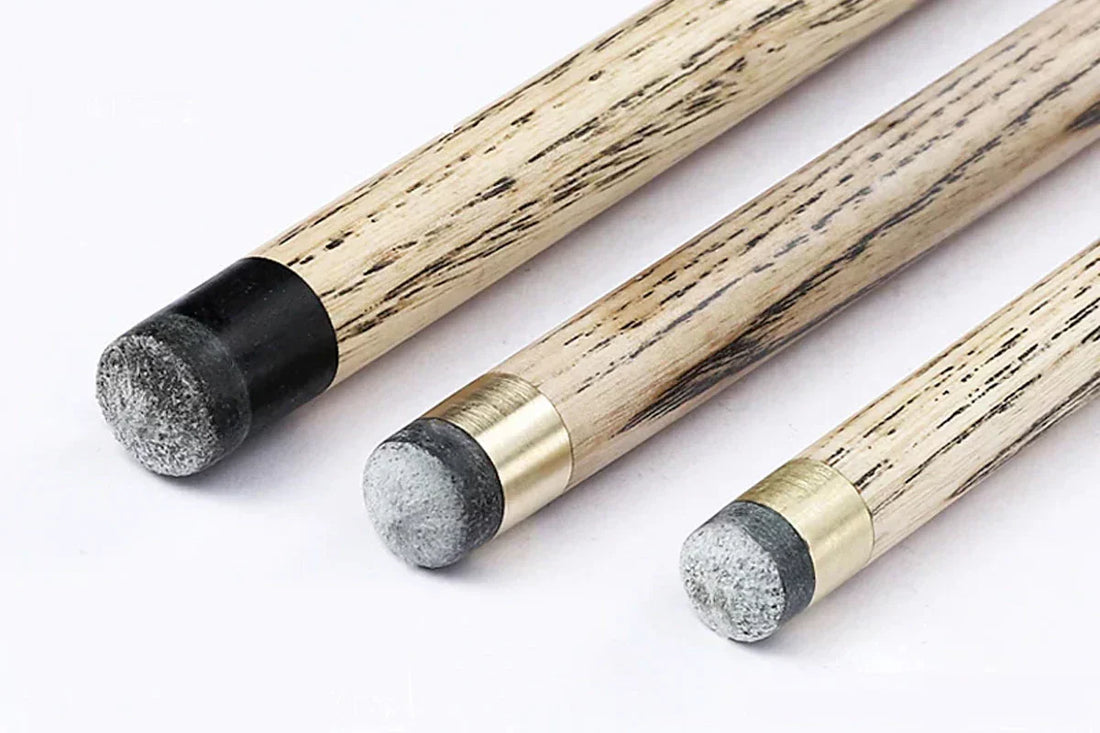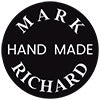
How to Choose the Right Snooker or English Pool Cue
Whether you’re new to the game of pool or a seasoned veteran looking to improve your game, choosing the right snooker or English pool cue can be like a minefield. But don’t worry – finding the perfect cue isn’t about picking the flashiest or most expensive cue; it’s about choosing the right cue for your playing style, table type, and level of commitment. Here’s a down-to-earth guide to help you make the right choice, without the stress.
Know Your Battleground
Snooker Cues = Precision scalpels for:
- 12ft tournament tables where you’ll be chasing that elusive 147.
- Exquisite returns & century breaks, demand finesse and control.
English Pool Cues = Streetfighters built for:
- 7ft pub tables with pockets narrower than a London parking space
- Fast-paced Blackball battles & 8-ball scrambles
- Surviving Thursday Night League
Pro Tip: If the pool table near you seems to have more beer spilled than balls played, you need a pool cue that can handle the heat.
Playing Style: Find What Works for You?
Your playing style should determine the type of cue you choose. Snooker requires finesse, subtlety, and superb cue ball control, so you need a snooker cue that can provide that fine touch. On the other hand, if you prefer the faster, more aggressive style of English pool, you'll need a slightly heavier cue designed for quick shots and quick stance play.
Size Matters (But Not As You Think)
Length
- Snooker: 57-59" - the perfect length for a full-sized table, giving you the distance you need without having to stretch.
- Pool: 48-57" - short enough to navigate the tight spaces of a pub pool table, yet compact enough for a quick shot after a pint.
Weight
- Snooker: 17-21oz - light enough to let you finesse those precision shots, but with enough heft to power through clusters of balls.
- Pool: 18-20oz - just the right weight for those hard-hitting breaks and fast shots, without feeling like you’re swinging a sledgehammer.
Joint
Brass Joints: The classic choice and provide a natural feel and great balance.
Alloy Joints: Durable and reliable.
Quick-Release: Convenient for travel.
Ferrule & Tip Talk
Brass ferrules are traditional, but alloy lasts longer—no wearing down like a well-used pint glass.
| Game | Ideal Tip Size | Why It Works |
|---|---|---|
| Snooker | 9-10mm | Perfect precision for 52.5mm balls |
| English Pool | 8-9mm | Better control on 57mm balls |
Local Wisdom: Many Yorkshire players swear by the 8.5mm pool cue, especially in those tough pocket, top-ranked tournaments.
Wood You Choose It?
Ash
- The Ronnie O'Sullivan choice
- Visible grain aids calibration
- Stiff, light, and responsive—perfect for snooker purists who want to be in control.
Maple
- Smoother than a London taxi driver's small talk on a quiet day.
- Less bouncy, perfect for a pub break
- Hides dings from over-enthusiastic shots
Carbon Fibre/Hi-Tech Composite:
- Great for humid climates, as it won’t warp or lose its feel.
- Lightweight, durable, and feels premium—perfect if you’re after that touch of luxury.
Joint Decisions: What’s Your Style?
3/4 Joint
- Better for positional play
- "Qualified player" status
- Requires actual skill to maintain
1-Piece
- Snooker's version of a katana - super power transfer
- Favoured by old-school club players who still use scoreboards
- Pro: Zero vibrations on century-break attempts
- Con: Transporting this thing requires planning, otherwise you'll look like someone blocking an escalator during rush hour.
2-Piece
- Ideal for convenience and easy travel.
- Perfect if you play on the move or want to keep it tucked behind the bar at your local.
- A solid all-around choice for most regular players.
Craftsmanship
Handmade vs. Machine-Made: Handmade cues often have unique grain patterns and craftsmanship but come at a premium.
Feel: Does the cue feel comfortable in your bridge hand? Does it suit your grip and stance? These little details can make a huge difference in your intense game.
Balance: Does the cue feel too heavy at the tip, or is it more butt-heavy? A well-balanced cue will make every shot easier.
Sound: When you hear the clear, pleasant “click” when the cue tip hits the ball, you know it’s a well-made cue.
Budget Breakdown: What’s in Your Price Range?
The price range for cues can vary greatly, from budget-friendly options under £50 to top-end handmade pieces costing thousands. For beginners, a mid-range cue (£130–£230) offers a balance of quality and affordability. As your game improves, you can increase your investment.
| Price Range | Cue Options | Product Positioning |
|---|---|---|
| £50-£130 | Mark Richard White Badge | Great entry-level cues |
| £130-£230 | Mark Richard Black Badge | Mid-range cues for more serious players about improving |
| £230+ | Mark Richard Alloy Badge | Top-quality cues for players who want the ultimate experience |
Customization: Make It Your Own
Weight: You can select the cue weight that feels just right for you.
Extensions: Add length to the cue for quick shots or longer shots.
Cue case: Replace the standard case with a premium option.
Maintenance: Keep Your Stick Ready
- Weekly: Wipe with a microfibre cloth to remove chalk and oil (never use a barbecue napkin).
- Monthly: Lightly sand tip & re-chalk groove.
- Seasonal: Apply beeswax to the wooden shaft to keep it smooth and protected.
- Always use a Cue Case: Protect your cue from temperature changes and knocks.
- NEVER: Leave your cue leaning against a radiator—trust me, it’ll warp.
Tips for Beginners: What to Look For
If you’re new to cue sports, don’t feel the need to invest in a high-end cue straight away. Start with something affordable but solid. Look for cues that are well-balanced and comfortable to hold. The most important thing is to get a feel for how the cue plays and fits your style. Once you get more experience, you can upgrade to something more advanced.
Conclusion: Choose the Cue That Matches Your Game
Choosing between a snooker cue and an English pool stick isn't about good vs bad - it's about matching your weapon to your battlefield. Whether you're chasing 147 glory or just trying to avoid buying the next round, the right cue makes all the difference.
Whether you're playing a quick round of blackball at the bar or competing in a snooker tournament, having a cue that fits your needs can enhance your game. Consider the length, weight, and style that suits your playing environment and skill level. Don't be afraid to try different cue styles before choosing the right one.
Selecting a cue is a personal journey. Don’t rush it —take your time to test options, and prioritize how the cue feels in your hands. A well-chosen cue can elevate your game and become a trusted companion for years. Happy shooting!
